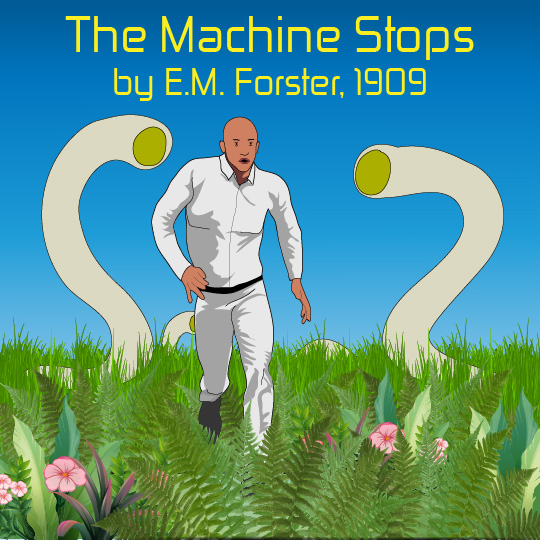Archive for September, 2023
Immersive Worlds Podcast

I have been a “New Media” professor since 1999 and while teaching technical production courses, I have learned that it can be inspirational for the student to interweave fiction into these courses. The short stories that I select relate directly to the technical material, such as web development. For example, a story such as E.M. Forster’s 1909 “The Machine Stops” is both inspirational and illuminating. Most students do not consider how a 1909 fiction may reflect contemporary life. Over the years, I have developed a list of such readings and I have decided to read, record and publish these readings. Although I am not a voice actor, I hope someone might enjoy these readings. (I am also enjoying creating the illustrations for these readings.)
The recordings are available via the browser and as a Podcast:
https://www.ambriente.com/immersiveWorlds/
https://www.ambriente.com/immersiveWorlds/index.xml
Apple Podcast link: https://podcasts.apple.com/us/podcast/immersive-worlds/id1707925334
There are currently two stories available:
“The Machine Stops” by E. M. Forster published in November 1909 issue of The Oxford and Cambridge Review. Perhaps due to radio and an expanding telephone system and inventions such as the Nipkow disk and mechanical televsions Forster was able to envision people communicating via hand-held discs. But even with these 19th century inventions, Forster’s world in which people live in isolation and communicate via a live image seems incredibly prescient. Due to apocalyptic wars, humanity retreated into the earth and constructed a gigantic machine to tend to all their needs. After hundreds of years, the Machine is a god-like construction, until it begins to break down.
“With Folded Hands” by Jack Williamson published in the July 1947 issue of Astounding Science Fiction. Following World War II and the atomic bombings of Hiroshima and Nagasaki, Williamson felt that “some of the technological creations we had developed with the best intentions might have disastrous consequences in the long run.” Today, with the rising use of artificial intelligence, Williamson’s short story seems as relevant as when it was first published in 1947.
